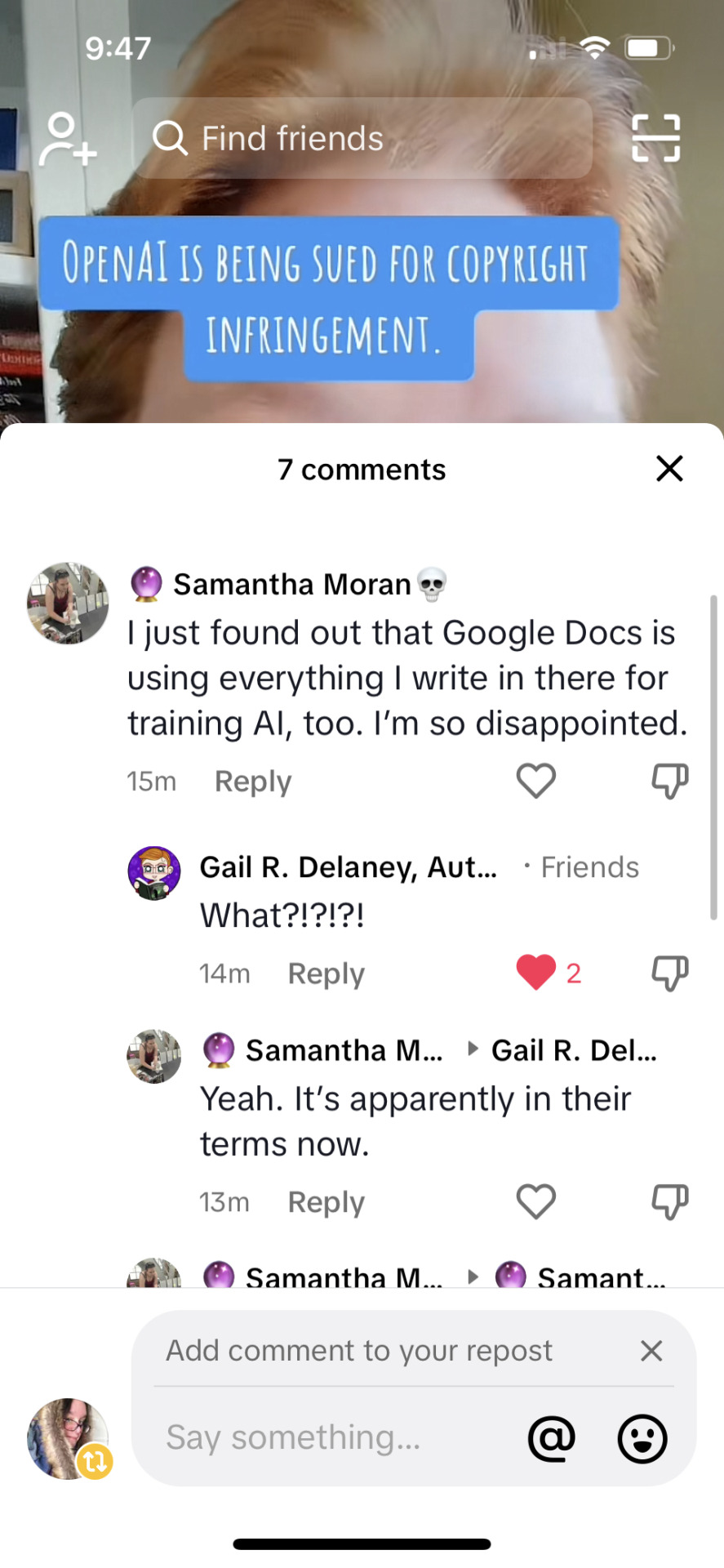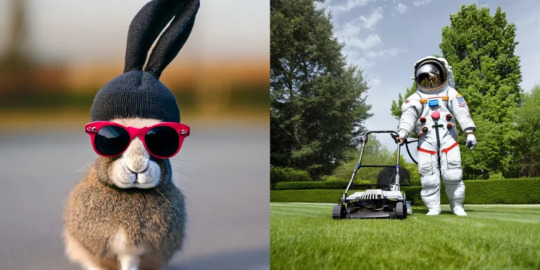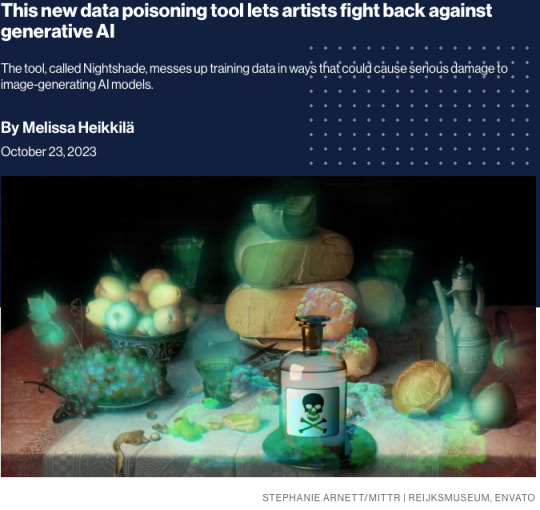#AI copyright lawsuit
Text
The most recent copyright lawsuit in the realm of AI centers around Mike Huckabee and his literary works
Authors Take Legal Action Against Tech Giants in AI Copyright Lawsuit
In a significant legal development, a group of authors, including former Arkansas Governor Mike Huckabee and prominent Christian writer Lysa TerKeurst, are suing tech behemoths Meta and Microsoft, alongside other entities such as EleutherAI and Bloomberg, over the unauthorized use of their literary works in the development of…

View On WordPress
#AI copyright lawsuit#AI models and copyrighted materials#Authors sue Meta and Microsoft#Authors&039; rights in AI development#Books3 dataset controversy#Compensation for data contributors#Copyright infringement in AI#Digital copyright and AI training#EleutherAI and Bloomberg in copyright lawsuit#Huckabee and Lysa TerKeurst lawsuit#Legal action against AI companies#Tech giants and author rights
0 notes
Text
AI models can seemingly do it all: generate songs, photos, stories, and pictures of what your dog would look like as a medieval monarch.
But all of that data and imagery is pulled from real humans — writers, artists, illustrators, photographers, and more — who have had their work compressed and funneled into the training minds of AI without compensation.
Kelly McKernan is one of those artists. In 2023, they discovered that Midjourney, an AI image generation tool, had used their unique artistic style to create over twelve thousand images.
“It was starting to look pretty accurate, a little infringe-y,” they told The New Yorker last year. “I can see my hand in this stuff, see how my work was analyzed and mixed up with some others’ to produce these images.”
For years, leading AI companies like Midjourney and OpenAI, have enjoyed seemingly unfettered regulation, but a landmark court case could change that.
On May 9, a California federal judge allowed ten artists to move forward with their allegations against Stability AI, Runway, DeviantArt, and Midjourney. This includes proceeding with discovery, which means the AI companies will be asked to turn over internal documents for review and allow witness examination.
Lawyer-turned-content-creator Nate Hake took to X, formerly known as Twitter, to celebrate the milestone, saying that “discovery could help open the floodgates.”
“This is absolutely huge because so far the legal playbook by the GenAI companies has been to hide what their models were trained on,” Hake explained...
“I’m so grateful for these women and our lawyers,” McKernan posted on X, above a picture of them embracing Ortiz and Andersen. “We’re making history together as the largest copyright lawsuit in history moves forward.” ...
The case is one of many AI copyright theft cases brought forward in the last year, but no other case has gotten this far into litigation.
“I think having us artist plaintiffs visible in court was important,” McKernan wrote. “We’re the human creators fighting a Goliath of exploitative tech.”
“There are REAL people suffering the consequences of unethically built generative AI. We demand accountability, artist protections, and regulation.”
-via GoodGoodGood, May 10, 2024
#ai#anti ai#fuck ai art#ai art#big tech#tech news#lawsuit#united states#us politics#good news#hope#copyright#copyright law
2K notes
·
View notes
Text
Also did you know that the reason NYT can sue openAI with the expectation of success is that the AI cites its sources about as well as James Somerton.
It regurgitates long sections of paywalled NYT articles verbatim, and then cites it wrong, if at all. It's not just a matter of stealing traffic and clicks etc, but also illegal redistribution and damaging the NYT's brand regarding journalistic integrity by misquoting or citing incorrectly.
OpenAI cannot claim fair use under these circumstances lmao.
#current events#open ai#openai#capitalism#lawsuits#nyt#new york times#the new york times#Phoenix Talks#copyright#copyright law#james somerton
3K notes
·
View notes
Text

I AM SO FUCKING TIRED OF THIS AI SCRAPING BULLSHIT, STOP IT YOU MOTHERFUCKERS.
#ai copyright#AIcontroversy#AI is theft#AI lawsuits#fuck off with your scraping#fuck off with that shit
3K notes
·
View notes
Text
considering that trigun became trending multiple times last year and it was partially because of that damn couch i cant wait to see the AI poisoned with the couch
#i want to see that couch in the most random places#trigun#also if you think about it alot of people here do fanart of stuff that are under copyright#so if anything tangible comes through in an ai “art” pic#a lawsuit could happen#this is all to say i want nightow suing tumblr for using his dear old couch without his permission#we get a pass but the ai companies? never
9 notes
·
View notes
Text
So my brother made this excellent point about the AI art lawsuits: They're going after the startups.
The programs being sued are Midjourney and Stable Diffusion; in fact, Stable Diffusion is being sued twice, you know the program that's open source. And here's the thing, if the lawsuits work and Stability AI goes under, machine learning is not gonna disappear, it's gonna still be used by people who can afford better lawyers and pay licensing fees, i.e. tech giants like Google.
One of the people involved in the lawsuits said this was like the issue with Napster and how the solution was to establish licenses and stuff, like Spotify; you know? Spotify? The music monopoly that underpays musicians? That's apparently the solution, make AI art a monopoly that underpays artists to use their work to train the machine; that's definitively better than having independent developers
Like seriously guys, these lawsuits are bad; they risk Fair Use, they can strengthen tech monopolies. I know what you're trying to do, but I think the result is gonna be the opposite
68 notes
·
View notes
Text
So I want to clear something up about WHY exactly authors can sue OpenAI for using their works in the ChatGPT dataset.
The thing under fire is NOT the actual works that are generated by ChatGPT. As long as that work is not sold for profit, it's legally the same as if the person who generated it wrote it themselves. The users are not at fault for using the tool and can't be sued (as long as they aren't selling it) Like how AO3 can't be sued for hosting fanfiction. As long as nobody is profiting of the transformed work, it doesn't infringe on Intellectual Property.
However OpenAI IS PROFITING from the use of the intellectual property in their dataset. It is improving their tool and helping them sell their $20 premium ChatGPT subscription. They are enabling people to generate whole books using ChatGPT and list them on Kindle Unlimited for profit.
There are basically three outcomes possible for these cases.
1) Nothing happens and AI can keep stealing from authors with impunity
2) OpenAI is forced to remove copyrighted works from the dataset of their paid ChatGPT program, and make everyone using the free service sign a completely unenforceable waiver saying they will not sell anything made with the tool.
3) OpenAI is forced to remove all copyrighted work from all datasets, to prevent products generated with the tool from violating copyright should they be sold for profit.
Obviously #3 is the goal. That would be a landslide victory for artists and basically set precedent that could be used by visual artists and other creatives to keep their work from being used to train AI. Unfortunately I don't think it is likely, as it would kneecap (if not kill) the AI industry almost instantly and I just can't see a judge doing that.
#2 would mean a slow but sure death of the AI industry, but wouldn't actually protect authors all that much. By preventing AI from profiting off copyrighted work, the paid versions of AI tools will be notably worse than the free versions and nobody will pay for them. Eventually the lack of profitablity will mean AI companies can't afford to run the huge servers needed to power their tools, and the tools will be shut down.
#1 is what we have already seen happen to a number of smaller lawsuits targeting the use of copyright material in AI datasets, and unless people really show support for the current big lawsuit, is exactly what will happen again.
#ChatGPT#OpenAI#AI Lawsuit#Legal Explanation#Not a lawyer but I spent 300 hours last year listening to legal conferences on copyright to digitize them#Any real lawyers can feel free to correct me though#hope this clears some things up#information#ai#ai hate
7 notes
·
View notes
Text
No one on this site-comma-webbed understands how copyright works.
#the fact that two out of the three artists in a major lawsuit against Stability AI#(which by the way Stability are the guys publishing democratized AI models instead of hawking more corporate trash)#didn't have any copyright registered on any of the work they were suing over the use of#but still filed a whole class action lawsuit#paints a grim picture of how well most people understand the extremely obtuse and opaque copyright system#which governs our lives and the art we are allowed to produce and the things we are allowed to say#anyway Chuck Tingle is an inspiration
2 notes
·
View notes
Text
I wanna share this campaign with all the artists that are concerned about their future with the rise of AI generated pictures. I thought these news were known to all the art community but it seems not, so here it goes. Karla Ortiz, Sarah Andersen and other artists from the Concept Art Association are starting a gofundme campaign to promote legal changes so that artists are appropiately protected from AI databases, so that these don't use art without authorization, among other things. Right now intellectual property and copyright laws around the world don't consider AI art as it's a new technology and the way it uses unauthorized art hasn't been regulated. This would be a huge step towards protecting our works and our jobs. The music community has managed to stop AI from using copyright protected music, so I have big expectations about this campaign. Nobody says that AI generated pictures should disappear in its entirety, but it should only use art that either belongs to the public domain, or art from expressly consenting artists (that should get economically compensated for that).
Here's the campaign: https://www.gofundme.com/f/protecting-artists-from-ai-technologies
8 notes
·
View notes
Text
There's legit problems with AI to be discussed but I cannot take anyone seriously who genuinely suggests copyrighting style as a way to combat ai. Like please tell me youre not serious. If you supported style copyright like four years ago everyone rightfully acknowledged you as a stuck up asshole
#talking#also copyright literally never works in the favor of small artists lmao#when Adobe is backing your 'anti-ai' lawsuits... maybe you should take a step back and ask who's really benefitting from it
4 notes
·
View notes
Text
The Morning After: Getty Images sues AI art generator
Getty Images announced it’s suing Stability AI, makers of the AI art tool Stable Diffusion, over alleged copyright violations. “It is Getty Images’ position that Stability AI unlawfully copied and processed millions of images protected by copyright and the associated metadata owned or represented by Getty Images absent a license to benefit Stability AI’s commercial interests and to the detriment…

View On WordPress
2 notes
·
View notes
Note
got anything good, boss?
Sure do!
-
"Weeks after The New York Times updated its terms of service (TOS) to prohibit AI companies from scraping its articles and images to train AI models, it appears that the Times may be preparing to sue OpenAI. The result, experts speculate, could be devastating to OpenAI, including the destruction of ChatGPT's dataset and fines up to $150,000 per infringing piece of content.
NPR spoke to two people "with direct knowledge" who confirmed that the Times' lawyers were mulling whether a lawsuit might be necessary "to protect the intellectual property rights" of the Times' reporting.
Neither OpenAI nor the Times immediately responded to Ars' request to comment.
If the Times were to follow through and sue ChatGPT-maker OpenAI, NPR suggested that the lawsuit could become "the most high-profile" legal battle yet over copyright protection since ChatGPT's explosively popular launch. This speculation comes a month after Sarah Silverman joined other popular authors suing OpenAI over similar concerns, seeking to protect the copyright of their books.
Of course, ChatGPT isn't the only generative AI tool drawing legal challenges over copyright claims. In April, experts told Ars that image-generator Stable Diffusion could be a "legal earthquake" due to copyright concerns.
But OpenAI seems to be a prime target for early lawsuits, and NPR reported that OpenAI risks a federal judge ordering ChatGPT's entire data set to be completely rebuilt—if the Times successfully proves the company copied its content illegally and the court restricts OpenAI training models to only include explicitly authorized data. OpenAI could face huge fines for each piece of infringing content, dealing OpenAI a massive financial blow just months after The Washington Post reported that ChatGPT has begun shedding users, "shaking faith in AI revolution." Beyond that, a legal victory could trigger an avalanche of similar claims from other rights holders.
Unlike authors who appear most concerned about retaining the option to remove their books from OpenAI's training models, the Times has other concerns about AI tools like ChatGPT. NPR reported that a "top concern" is that ChatGPT could use The Times' content to become a "competitor" by "creating text that answers questions based on the original reporting and writing of the paper's staff."
As of this month, the Times' TOS prohibits any use of its content for "the development of any software program, including, but not limited to, training a machine learning or artificial intelligence (AI) system.""
-via Ars Technica, August 17, 2023
#Anonymous#ask#me#open ai#chatgpt#anti ai#ai writing#lawsuit#united states#copyright law#new york times#good news#hope
744 notes
·
View notes
Video
youtube
#If this loses as transformative this can do just as much damage to artists and art as if it wins#it's very interesting#will the copyright laws have to go under reform of what transformative qualifies as and specifically exclude ai generated imagery?#but how can that even be upheld?#still don't think everything throwing hissy fits like they were and clogging up feeds with banners does shit besides be annoying#and i doubt those people have thought once about the law around copyright that currently protects them#very interesting#guess we'll see how this all plays out#either way ai is still done and here#and it could still be a very good thing for a pipeline#but yeah#it really does feel like it's a matter of the lesser evil#in case of this lawsuit#either win is still a bit of a loss and a risk to open up doors on either side#i remain neutral#the nerd in me thinks it's cool as shit that they got it to do guesswork so well with the noise#and the artist in me appreciates good art#so meh#the driving point in my own art has always been to learn#not to make money anyway#not like my finances will change either way#or my desire to make art#or learn it#but it is absolutely fascinating from a legal standpoint#and oh so tricky
2 notes
·
View notes
Text

lol
#this is 100% to avoid any potential lawsuits down the line when copyright holders get pissed off at the ai scrapes stealing their work#but also fuck you tumblr if my original writing is good enough for the AI bots then copy written material should be too#ange rambles
0 notes
Text

A new tool lets artists add invisible changes to the pixels in their art before they upload it online so that if it’s scraped into an AI training set, it can cause the resulting model to break in chaotic and unpredictable ways.
The tool, called Nightshade, is intended as a way to fight back against AI companies that use artists’ work to train their models without the creator’s permission. Using it to “poison” this training data could damage future iterations of image-generating AI models, such as DALL-E, Midjourney, and Stable Diffusion, by rendering some of their outputs useless—dogs become cats, cars become cows, and so forth. MIT Technology Review got an exclusive preview of the research, which has been submitted for peer review at computer security conference Usenix.
AI companies such as OpenAI, Meta, Google, and Stability AI are facing a slew of lawsuits from artists who claim that their copyrighted material and personal information was scraped without consent or compensation. Ben Zhao, a professor at the University of Chicago, who led the team that created Nightshade, says the hope is that it will help tip the power balance back from AI companies towards artists, by creating a powerful deterrent against disrespecting artists’ copyright and intellectual property. Meta, Google, Stability AI, and OpenAI did not respond to MIT Technology Review’s request for comment on how they might respond.
Zhao’s team also developed Glaze, a tool that allows artists to “mask” their own personal style to prevent it from being scraped by AI companies. It works in a similar way to Nightshade: by changing the pixels of images in subtle ways that are invisible to the human eye but manipulate machine-learning models to interpret the image as something different from what it actually shows.
Continue reading article here
#Ben Zhao and his team are absolute heroes#artificial intelligence#plagiarism software#more rambles#glaze#nightshade#ai theft#art theft#gleeful dancing
22K notes
·
View notes
Text
Groundbreaking Lawsuit: OpenAI Faces Copyright Battle with Prominent Authors
Discover the latest news about the significant copyright lawsuit against OpenAI, where popular fiction authors accuse the AI organization of copyright infringement in training ChatGPT. This headline horizon raises important questions about the intersection of artificial intelligence and copyright law.
1 note
·
View note